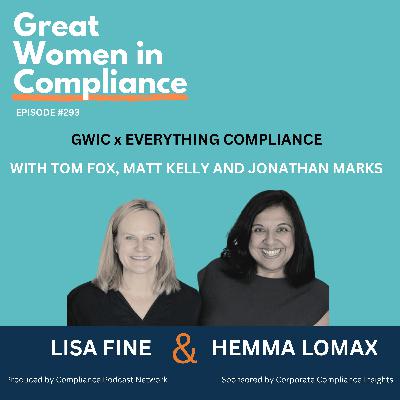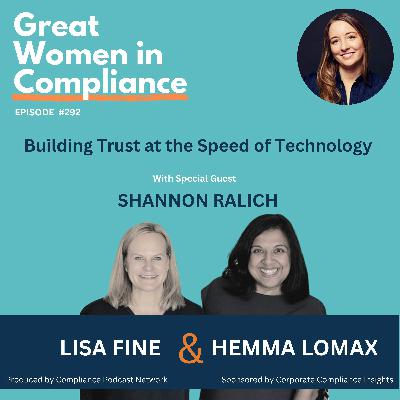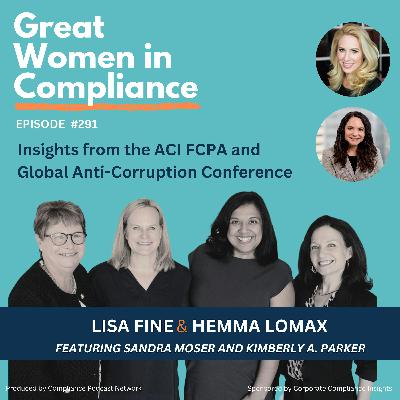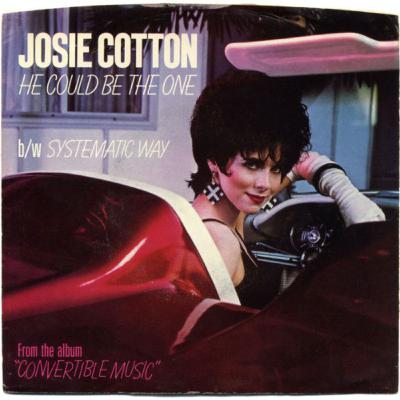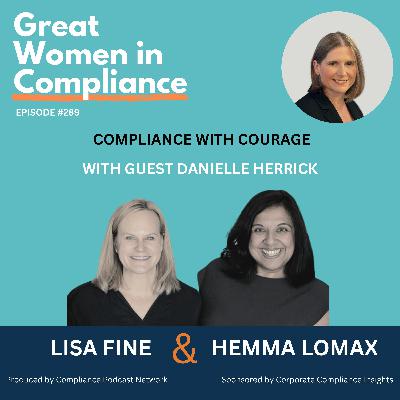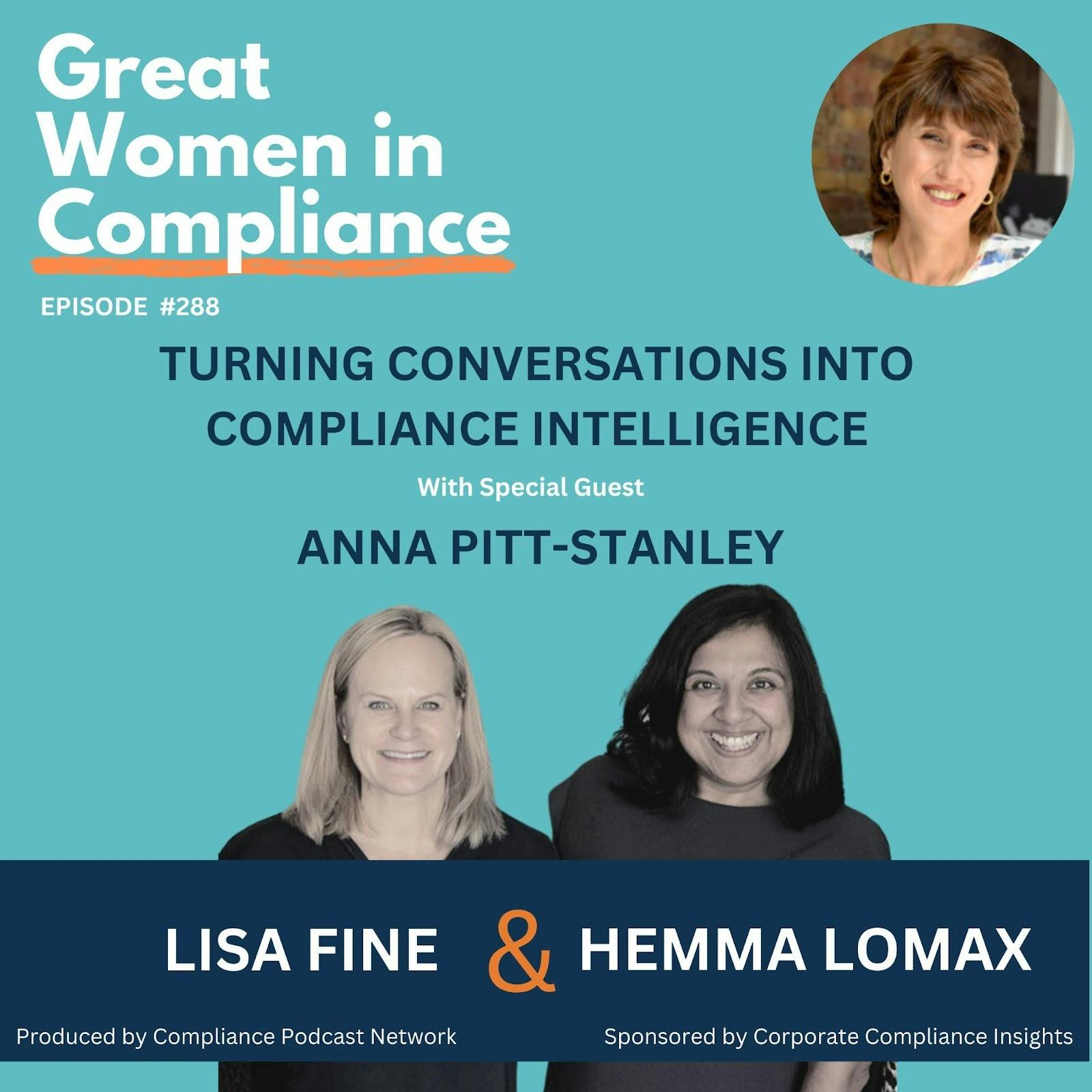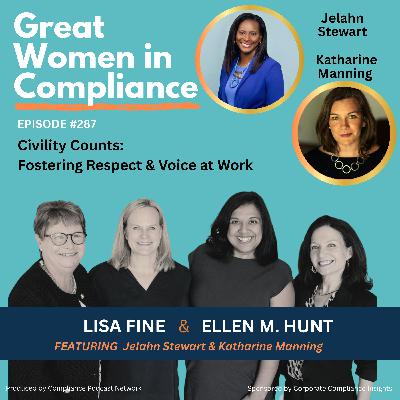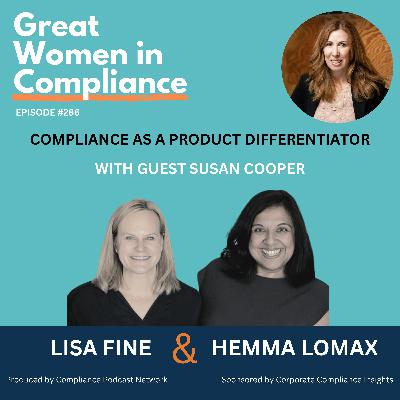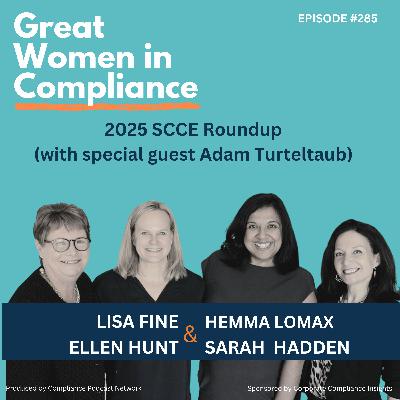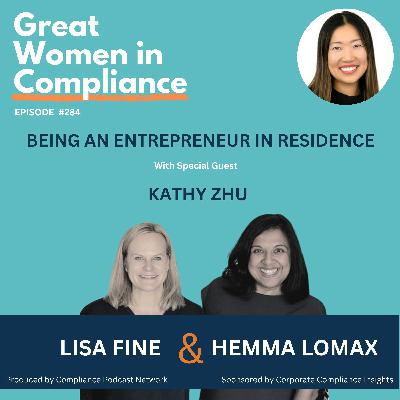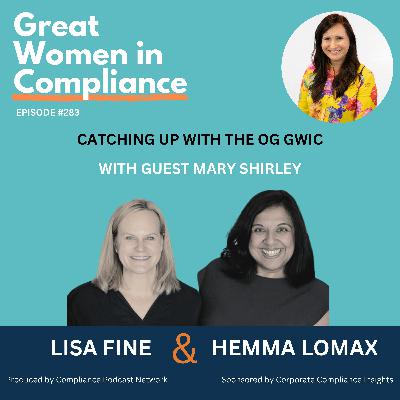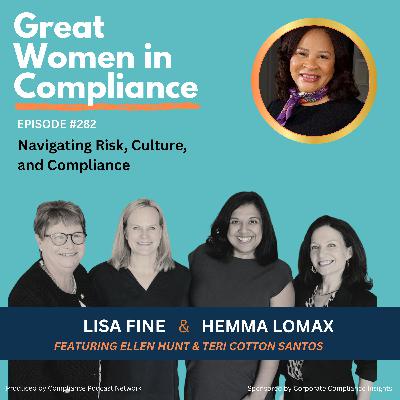Discover Great Women in Compliance
Great Women in Compliance

Great Women in Compliance
Author: Lisa Fine and Hemma Lomax
Subscribed: 51Played: 983Subscribe
Share
Description
For a long time, compliance was perceived as a part of the larger legal world. Today, compliance is its own profession—a place where people work tirelessly to make the world a better place, one where doing the right thing is the standard for everyone. There are a lot of amazing and inspirational women who have helped the compliance field develop into what it is today, and women are joining this field every day. They are leading the work on cutting-edge issues and breaking barriers for women. Join Hemma Lomax and Lisa Fine as they talk with women in compliance who are making a difference. This podcast is part of the Compliance Podcast Network.
301 Episodes
Reverse
In this conversation, GWIC host Dr. Hemma R. Lomax and Shalini Rajoo explore the critical role of decision rubrics in governance, accountability, and trust, especially in the context of AI. Shalini shares her journey from law to compliance, emphasizing the importance of understanding systems and the impact of leadership on decision-making processes. They discuss how transparency and clarity in decision-making can build trust within organizations and the necessity of responsible AI governance. Practical tips for improving decision quality are also provided, highlighting the importance of self-awareness and critical thinking in leadership.
Takeaways:
The biggest risk in governance is unclear decisions.
AI amplifies existing clarity or confusion in decision-making.
Systems and rules reflect the identities of their architects.
Everyone has an impact on those around them every day.
Leadership is about improving the people around you.
It's not just about rules; it's about how people behave.
Decision rubrics provide consistency and predictability in outcomes.
Transparency in decision-making processes builds trust.
Slowing down to ask questions can lead to better decision-making.
Writing down the reasons for decisions brings clarity and accountability.
Sound bites:
"Systems and rules are not inherently neutral."
"Transparency in decision making builds trust."
"Slow is smooth, and smooth is fast."
Chapters:
00:00 Introduction to Decision Rubrics and Governance
02:55 Shalini's Journey: From Law to Governance
06:09 The Impact of Systems on Leadership and Accountability
09:09 Transitioning to Compliance and Ethics
11:49 Understanding Decision Rubrics in Compliance
15:06 The Role of Leadership in Decision Making
18:03 Designing Conditions for Effective Decision Making
20:47 The Importance of Transparency in Decision Processes
24:09 Decision Rubrics: Building Trust in Organizations
26:49 AI and Governance: Leadership Infrastructure Failures
29:47 Responsible AI: The Role of Ethics and Compliance
32:55 Practical Tips for Improving Decision Quality
36:00 Conclusion: The Future of Decision Making in AI
Guest Biography:
Shalini Rajoo is the Founder and Principal Consultant of Shalini Rajoo Advisory, LLC, where she partners with organizations to design governance, compliance, and decision-making systems that are resilient, trustworthy, and aligned to real operational pressures. Across more than two decades in law, compliance, HR, and organizational leadership, Shalini has helped companies and leaders move beyond check-the-box frameworks to build structures that embed accountability, clarity, and performance into everyday decisions.
She began her career in South Africa, first as a public prosecutor and then leading regulatory work with the Department of Trade and Industry, collaborating with legislative and executive stakeholders on corporate, competition, and consumer law. After relocating to the U.S., Shalini practiced commercial litigation. She later served as Director of Global Business Conduct for a Fortune 500 company, where she redesigned ethics and compliance systems, led global risk assessments, and championed psychological safety and integrity-based practices.
Today, Shalini’s work centers on helping leaders clarify decision rights, governance architectures, and accountability pathways — especially as organizations adopt AI and automation. She recently spoke at the Opal Group’s Corporate Governance & Ethics in the Age of AI conference, where she reframed AI governance as a leadership-infrastructure challenge rather than a purely technical or compliance one.
Today is a milestone. It is episode 300, and marks 100 episodes since Hemma joined Lisa as a co-host and Ellen and Sarah made us what we call “Team GWIC.” To recognize this, we go together to recognize some of the individuals and values that define our profession.
We highlight some of the amazing people who have supported us and the profession, including culture carriers, change agents, mentors, Great Gentlemen in Compliance, and collaborators and supporters.
We also wanted to recognize some true MVPs – those who have stood up at personal and professional risk to strengthen integrity, support whistleblowers, and push the profession forward. It also shines a light on the often-unspoken challenges of ethical decision-making and the consequences that may come from speaking out, including well-being and professional isolation. Their work and stories reaffirm the reasons we do what we do and why we are committed to the mission.
We should have an award for the entire GWIC community for your support and for sticking with us. We are excited for what comes next, including new branding, materials, and exciting content.
In this episode of the Great Women in Compliance Podcast, Lisa Fine and Sarah Hadden (Gen X) are joined by Rebecca Anker and Emily Frank for an engaging conversation on what the next generation needs from ethics and compliance. Rebecca, Gen-Z, and Emily, a millennial, share candid insights shaped by their experiences as part of the emerging workforce.
The discussion explores the real-life impact of generational influences—from questioning hierarchy and outdated practices to prioritizing transparency and usability— minimizing the traditional reliance on hierarchy. Rebecca and Emily discuss how the rising stars in the profession are taking the evolution to a collaborative, service-oriented function that partners with the business and clearly explains the why behind policies and decisions to new levels.
They also discuss current topics, including creative, shorter training approaches, balancing regulatory requirements with innovation, responsible AI use, and rethinking speak-up programs. They discuss why language matters, why “whistleblower” may no longer resonate, and how normalizing the act of raising concerns can strengthen speak-up culture across generations.
The episode wraps with practical advice from Rebecca and Emily for more “seasoned” compliance professionals to stay curious and engage with new voices and ideas. It is exciting to see where they and their peers will take the profession.
Dive into the world of compliance and high-stakes investigations!
In this episode of #GWIC, Hemma Lomax talks with Jamie Hoxie Solano, Partner at Dynamis LLP and former federal prosecutor, about how compliance and legal teams can lead with precision when incidents become investigations—especially where cyber risk and digital assets raise the stakes and the speed.
We cover:
What prosecutors look for when assessing credibility and cooperation
The “first 72 hours” of an internal investigation: triage, scope, evidence, and governance
Why cyber and digital assets matter in changing the evidence trail and the decision timeline
How to protect privilege while still moving fast
Practical guidance for cross-functional leadership under pressure
Jamie's Bio
Jamie Hoxie Solano is a Partner at Dynamis LLP and a former federal prosecutor. She represents individuals and companies in high-stakes matters spanning government and internal investigations, white-collar and regulatory defense, and cybercrime and digital asset disputes.
Before returning to private practice, Jamie served as an Assistant U.S. Attorney in both the Northern District of Texas and the District of New Jersey, working in units including cybercrime and national security, and serving (among other leadership roles) as the Digital Asset Coordinator for the District of New Jersey.
She is also an adjunct professor at Seton Hall Law School, where she teaches Persuasion and Advocacy.
In this roundtable episode of the Great Women in Compliance Podcast, Lisa Fine and Ellen Hunt are joined by whistleblower attorney Mary Inman and Professor Kate Kenny from the University of Galway to explore what really happens when women speak up. Drawing on Professor Kenny’s decade-long research on whistleblowing—including recent work with Transparency International—the conversation examines why women whistleblowers often face greater challenges, which deter them from raising concerns or from deciding to leave a job, rather than speaking up.
The discussion unpacks how gender stereotypes, gaslighting, and organizational culture shape how concerns are received, and why women are more likely to speak up when strong protections, anonymity, and collective reporting options are in place. Mary Inman adds a practitioner’s perspective, sharing what she sees in real cases and why many women choose to report together rather than go it alone.
As Ethics and Compliance practitioners consider how to help people speak up, this episode challenges us to review our programs and make improvements to support anyone raising concerns.
Layoffs, no matter which side of the desk you are on, are one of the most difficult realities of the workplace. Leaders demand empathy, clarity, and responsibility. For employees, they can bring shock, uncertainty, and the need to rebuild. In this episode, Lisa Fina and Ellen Hunt invited Gina Lakatos and Gwen Hassan to explore what it means to manage layoffs with integrity and how individuals can survive and even thrive in the aftermath.
Our conversation focused on the human experience of layoffs: the decisions, emotions, mistakes, and opportunities that shape what comes next.
🔍 What We Cover
Compassion and clarity matter on both sides of the desk
Why the corporate math of layoffs is not a judgment of value or performance
How leaders can communicate with clarity, empathy, and respect
Acknowledging the emotional impact of layoffs on those who remain
Practical strategies for thriving after job loss: mindset, skills, and next steps
Layoffs may close one chapter—but they don’t have to define your story. This episode offers insight, empathy, and actionable guidance for navigating one of work’s hardest realities with dignity and resilience.
#GWIC wishes all the most wonderful of holidays and a very happy, ethical & compliant New Year.
@LisaFine, @HemmaLomax, @SarahHadden & @EllenHunt gathered for the #GWIC-tacular 2025 round-up roundtable.
We reflected on 2025 as a year of disruption and rapidly changing public policy and on how Ethics & Compliance leaders must now, more than ever, manage the polarities we face. We expressed our gratitude for the generous and always supportive GWIC community and shared our optimism about 2026. We also unwrapped a gift that we’ll be working on in the new year.
We would love to hear what you would like GWIC’s focus to be in 2026.
You can hear the GWIC-tacular episode on any of these platforms:
📰 Corporate Compliance Insights
🎙️ Compliance Podcast Network
🍏 Apple
🎧 Spotify
📺 YouTube
In this episode of Great Women in Compliance, Lisa sits down with Valentina Lana, a Paris-based attorney and ethics & compliance leader who bridges industry and academia.
Valentina shares how an early-career opportunity sparked her passion for anti-corruption work and led her to where she is today. She has helped build major compliance programs and teaches at Sciences Po. She worked with Michael Sapin on the Sapin II law and breaks down its core elements for the GWIC audience. She discusses the requirement for companies to prevent corruption through formal compliance programs—and highlights why risk mapping and third-party due diligence remain the biggest practical challenges for organizations.
Valentina also discusses the evolution of cross-border cooperation between France and the U.S., how trust was built after years of tension, and why she believes that the partnership remains stable despite shifting global priorities.
She shares her view on AI’s growing role in compliance, emphasizing that AI is a powerful assistant, not a replacement for human judgment, nuance, and interpersonal insight, which remain the core of what we do.
Today, we have a special joint episode of GWIC and Everything Compliance. Lisa Fine and Hemma Lomax recently joined Matt Kelly and Jonathan Marks for an episode of Everything Compliance (Episode 162—the Numbers Numbers Numbers edition), which will post on Thursday, December 4. We are cross-posting the episode here on Great Women in Compliance.
Lisa Fine, Hemma Lomax, Matt Kelly, and Jonathan Marks each bring a unique perspective to the discussion of corporate corruption and the intersection with drug cartels, as exemplified by the Millicom Cellular case. Lisa highlights the need to understand the risks associated with smaller markets and the complexities of joint ventures, advocating for enhanced compliance education and vigilance to mitigate cartel-related corruption. Hemma underscores the importance of integrating proactive compliance measures and automation, promoting "everyday integrity as a service" to preempt issues like bribery and data leakage. Meanwhile, Matt and Jonathan focus on the structural vulnerabilities in governance and the critical need for transparency and robust monitoring systems to prevent the entanglement of corporate operations with cartel activities, cautioning against underestimating the risks in seemingly low-revenue markets.
Highlights include:
Millicom Cellular: Corporate Corruption and Cartel Connections
Enhancing Compliance through Systematic Involvement Strategies”
AI-Driven Real-Time Risk Detection in Compliance
Enhancing Governance to Prevent Sports Betting Scandals
Regulatory Changes in the Global Compliance Environment
AI-Enhanced Policy Clarity and Management Techniques
Raves and Rants
In this episode of Great Women in Compliance, co-host Dr. Hemma Lomax welcomes Shannon Ralich, Vice President of Compliance and Chief Privacy Officer at Machinify, to discuss the evolving landscape of data privacy, cybersecurity, and responsible AI.
Shannon shares her remarkable journey from a curious child taking apart electronics to a seasoned leader blending technology, law, and strategy. She offers insight into how curiosity and creativity can fuel governance excellence and explains what it means to design systems that anticipate risk and enable responsible innovation.
Together, Hemma and Shannon explore:
How privacy and cybersecurity intersect in today’s fast-evolving AI environment
The most pressing compliance challenges around data governance and global regulation
Lessons from the SolarWinds and Uber cases and the growing conversation around individual accountability for CISOs and compliance leaders
Practical steps for staying agile—through reliable news sources, cross-functional camaraderie, and professional networks
How to translate corporate compliance skills into meaningful community impact through nonprofit leadership and animal rescue advocacy
Shannon’s message is a powerful reminder that the best leaders bring their full selves to the work: technical precision, ethical clarity, and human compassion.
Biography:
Shannon Ralich is the Vice President of Compliance and Chief Privacy Officer at Machinify, a healthcare intelligence company applying AI to improve the efficiency and integrity of healthcare payments. With more than 20 years of experience across legal, compliance, privacy, and cybersecurity roles, Shannon specializes in aligning governance frameworks with business innovation.
She also serves on the Advisory Board of the Privacy Bar Section of the IAPP (International Association of Privacy Professionals). She is widely respected for her strategic, forward-thinking approach to data protection and responsible AI governance.
Beyond her professional expertise, Shannon is a passionate advocate for animal welfare. She sits on the Board of Directors for the Neuse River Golden Retriever Rescue, where she leverages her operational and technological skills to strengthen fundraising, improve systems, and support global rescue missions.
A lifelong learner and self-described “builder,” Shannon finds creativity and grounding through woodworking, outdoor adventures with her family, and contributing to causes that make both workplaces and communities more humane.
Note: The views expressed in this podcast are our own and do not represent the views of our employers, nor should they be taken as legal advice in any circumstances.
In this episode of Great Women in Compliance, co-hosts Lisa Fine and Hemma Lomax get a special preview of the 42nd Annual ACI Conference on the FCPA and Global Anti-Corruption. They are joined by two of the conference's distinguished speakers: Sandra Moser, Partner at Morgan, Lewis & Bockius and former Chief of the DOJ’s Fraud Section, and Kimberly Parker, Partner and Co-Chair of the White-Collar Defense & Investigations practice at WilmerHale.
Sandra and Kimberly share their personal journeys into the white-collar and compliance space, discuss why this conference is a "must-attend" event in the anti-corruption world, and dive deep into their upcoming session topics. Kimberly explores how companies are re-evaluating resource allocation as global priorities evolve, while Sandra tackles the critical compliance challenges of operating in China amid geopolitical tensions.
This episode is a must-listen for practical insights on shifting DOJ expectations, the future of compliance, and tips for any first-time attendees
Highlights include:
* Sandra and Kimberly’s Journeys to Compliance
* Spotlight on the ACI FCPA Conference:
* Evolving Priorities & Resource Allocation
* Navigating Compliance in China
* The Future of Compliance
Resources:
ACI’s 42nd Annual Conference on the FCPA and Global Anti-Corruption (December, Washington, DC - https://www.americanconference.com/fcpa-dc/
* Morgan, Lewis & Bockius: https://www.morganlewis.com/bios/sandramoser
* WilmerHale: https://www.wilmerhale.com/en/people/kimberly-parker
Biographies
Sandra Moser is a corporate investigations authority and trial lawyer who co-leads the firm’s global white collar and investigations practice. She is former chief of the US Department of Justice’s (DOJ’s) Criminal Division, Fraud Section in Washington, DC, and a former Assistant US Attorney (AUSA) for the District of New Jersey. She defends companies, boards, and executives in a wide range of matters—including healthcare and federal program fraud, the False Claims Act (FCA), the Foreign Corrupt Practices Act (FCPA), securities, commodities, and anti-money laundering—involving the DOJ, state attorneys general offices, US Securities and Exchange Commission (SEC), Commodity Futures Trading Commission (CFTC), US Congress, and other domestic and international enforcement agencies.
Kimberly A. Parker's practice focuses on white-collar criminal matters, internal corporate investigations, and compliance counseling. Ms. Parker is vice chair of the firm's Litigation/Controversy Department, co-chair of the White Collar Defense and Investigations Practice, and co-leads the Foreign Corrupt Practices Act (FCPA) and Anti-Corruption Practice. Ms. Parker is also co-chair of the firm's Pro Bono and Community Service Committee.
Ms. Parker represents clients in a range of criminal and enforcement matters and also provides compliance and governance advice. She has conducted internal investigations in the United States, Asia, Africa, Europe, and Latin America. She has represented companies and individuals in a variety of FCPA enforcement matters. She also regularly counsels clients facing difficult FCPA issues in a variety of business contexts, and assists clients in developing and implementing FCPA compliance programs and conducting FCPA training. She is a regular speaker at FCPA events.
In this episode of Great Women in Compliance, host Sarah Hadden sits down with Nicole Rose—lawyer, artist, author, and creator of the FRAME Training Method—to explore how human behavior, psychology, and creativity can transform compliance from a checkbox exercise into a movement that drives real change. Nicole shares the story behind her “Moneyball Compliance” approach, showing how small, measurable behaviors can predict integrity, build stronger cultures, and make ethics training finally stick. The two also discuss Nicole’s upcoming book, Told: How In-House Legal and Compliance Professionals Secure Airtime, Gain Traction, and Transform Organizations.
Four Takeaways:
1. Compliance Is About People, Not Policies
Nicole’s journey from lawyer to artist to compliance innovator reveals that effective compliance starts with understanding human behavior and culture—not just ticking boxes or enforcing rules.
2. Behavior Beats Metrics
Traditional compliance programs measure completion rates; Nicole’s “Moneyball Compliance” approach measures behaviors that predict integrity—like speaking up, giving feedback, and practicing micro-activities that build ethical “muscle memory.”
3. Curiosity Is the Secret Ingredient
Engagement happens when employees are curious. Nicole emphasizes creating “pre-frames” that connect compliance messages to what people already know and care about, making training meaningful and memorable.
4. Make It Real, Not Funny
Humor has its place in presentations, but when it comes to serious topics like bribery, privacy, or human rights, authenticity and relatability are far more powerful than laughs. Real characters and relatable stories drive real change.
In today’s episode, Lisa speaks with Danielle Herrick, VP of Risk, Compliance, and Ethics at Bloom Energy. After being diagnosed with Stage 4 cancer, Danielle began sharing her journey through her “Compliance with Courage” posts on LinkedIn. And her candor and openness, in turn, are inspiring the Ethics & Compliance community.
Danielle shares how her experience became a turning point – reshaping how she leads, works, and views life in compliance. She talks about finding balance after years as a self-proclaimed workaholic, learning to say no, and discovering strength in vulnerability.
They discuss how compassion belongs in compliance, what it means to truly “show up,” and how clear, human communication can be just as powerful as policies and procedures. Danielle also highlights the incredible support she’s received, including from her manager, Human Resources, and her professional community, and how that support has influenced her mission to “rewrite the rulebook with compassion.”
In this episode of Great Women in Compliance, co-host Hemma Lomax sits down with Anna Pitt-Stanley, Co-Founder and COO of Umony, to explore how the next generation of compliance technology can transform how organizations listen to their people, their culture, and their risk signals.
From her early work in voice innovation to co-founding Umony, Anna’s journey is rooted in a simple but powerful idea: that the truth of human behavior lives in communication. She and her co-founder, Dean Elwood, were driven by the frustration of seeing compliance programs overwhelmed by data but starved for insight. Together, they set out to build a company that turns conversations into decision-useful intelligence, without losing the human heart at the center of it all.
Anna shares how she leads with empathy, builds trust through operational discipline, and models what it looks like to be a C-suite leader who truly cares. This episode blends technology, leadership, and compassion — and reminds us that compliance done well is less about control and more about connection.
Episode highlight:
What does “the truth of behavior lives in communication” mean for compliance and culture?
How to balance surveillance and stewardship in modern communications governance.
Building a culture of compliance and compassion inside a high-growth tech company.
Leadership lessons from scaling with integrity: operational empathy, psychological safety, and trust by design.
The future of decision-useful compliance and what human-centric technology looks like in practice.
Biography:
Anna Pitt-Stanley is Co-Founder and Chief Operating Officer of Umony, where she leads operational governance, talent, partnerships, and disciplined execution as the company scales.
Before Umony, Anna co-founded Voxygen, a voice and communications innovation company later acquired by Lebara Group, where she served on the leadership team and board. Over her career, she has built a reputation for bridging complex, regulated environments with practical, people-first execution, delivering programs that align compliance, operations, and culture.
Anna holds an LL.M. in Law from the London School of Economics and Political Science (LSE). She also serves as a Director of Umony Limited and Umony Holdings Limited.
She is known for her focus on operational empathy, governance excellence, and creating workplaces where compliance and compassion thrive side by side.
Resources & Mentions:
Umony – Official Site: https://www.umony.com
Seedcamp: Welcoming Umony to the Portfolio (2025) – seedcamp.com/blog/umony
Notion VC: Why We Invested in Umony – notion.vc/portfolio/umony
Connect with Anna Pitt-Stanley on LinkedIn – https://www.linkedin.com/in/apittstanley/
New #GWIC Roundtable Episode
Civility isn’t just about being polite—it’s about trust, belonging, and creating workplaces where people feel safe to speak up. In this roundtable, hosts Lisa Fine and Ellen Hunt welcome:
Jelahn Stewart, SVP, Deputy GC & CCO at Leidos
Katharine Manning, President of Blackbird DC and author of The Empathetic Workplace
They share stories and strategies on:
How civility impacts performance, creativity, and resilience
Why incivility silences women more than men
Practical steps leaders and teams can take to build civil, ethical cultures
Healthy ways to respond when civility breaks down
The Great Women in Compliance Podcast, hosted by Hemma Lomax and Lisa Fine, shares the stories of women in the field of ethics and compliance, proudly sponsored by Corporate Compliance Insights.
Connect with us:
Great Women in Compliance on LinkedIn
Corporate Compliance Insights
Great Women in Compliance, hosted by Hemma Lomax and Lisa Fine, is sponsored by Corporate Compliance Insights.
#Leadership #WorkplaceCulture #RespectAtWork #Civility #InclusiveLeadership
In today’s episode, Lisa Fine speaks with Susan Cooper, Vice President of Regulatory Compliance Programs and Global Data Protection Officer at Meta, discussing her approach to compliance in the technology sector. Susan discusses the path that led her to her current role, which is unique as her team is embedded within Meta’s product organization.
Being part of the product development team allows compliance to work hand-in-hand with product development through their risk review process, which assesses privacy, security, content safety, and financial risks in a centralized process for over 1,400 products per month. It is part of their processes.
Susan also discusses how Meta utilizes “privacy-aware infrastructure,” embedding compliance requirements into standardized, reusable code components that can be used throughout the organization. She also provides some advice for compliance professionals, particularly those who are interested in technology companies, including:
Learn to speak “tech” if you want to work in tech compliance.
Get to know your stakeholders and their concerns;
Keep a growth mindset – be willing to ask questions and learn constantly; and
Embrace AI and automation tools to scale your work and keep learning about these tools.
Breaking News! #teamgwic was at the Society of Corporate Compliance and Ethics (SCCE) annual Ethics & Compliance Institute in Nashville and is here to give you an update on our experience. Ellen, Lisa, and Hemma all caught up mid-conference to interview each other about their panels and also what people were talking about outside the presentations. We had the chance to recap on our earlier panels: Ellen about how to train leaders to hear and act on bad news in a way to improve our programs; Hemma speaking about how to move your program from a risk-avoidant program to a forward-thinking ethics and compliance program, which is ultimately a competitive advantage, and Lisa’s panel which discussed data analytics for humans – intended to be a practical discussion of what data analytics are and how we are all analyzing data.
At the end, we were able to bring in a surprise guest – the one and only Adam Turteltaub, SCCE’s Chief Strategy and Engagement Officer. He provided highlights of the conference so far and updates about SCCE’s new CEO, Garth Jordan.
Sarah was unable to join the recording, but all would agree that CEI left us with new ideas, new friends, and the chance to catch up with this great community.
Now is the time for all of us to think of ourselves as entrepreneurs in residence, designing the future of compliance.
In this episode of the Great Women in Compliance Podcast, GWIC co-host Hemma Lomax speaks with Kathy Zhu, Co-Founder and CEO of Streamline AI, about her journey from big law to in-house legal at DoorDash to launching her own legal tech company.
They discuss the importance of adopting an entrepreneurial mindset within compliance and legal departments, the journey of building innovative solutions like Streamline AI, and how addressing workflow pain points can revolutionize the industry. Kathy shares her personal journey, practical tips for aspiring entrepreneurs, and insights on leveraging technology to optimize legal operations for the future.
Kathy’s story is a testament to the power of entrepreneurship as a service. Tune in to hear how frustration became innovation, why compliance leaders are uniquely positioned to design the future of our field, and how each of us can become a tech influencer inside our organizations.
✨ You’ll hear:
Why compliance leaders should see themselves as entrepreneurs in residence.
How Kathy turned workflow chaos into a scalable AI-driven product.
Practical ways to start experimenting with tech and influence the next generation of compliance.
This conversation is a powerful reminder that the future of compliance isn’t something we wait for — it’s something we create.
Guest Bio: Kathy Zhu
Kathy Zhu is the Co-Founder, CEO, and General Counsel of Streamline AI, a workflow intelligence platform transforming how in-house legal and compliance teams manage intake, triage, and operational efficiency.
Kathy began her career at Wilson Sonsini, advising startups and emerging companies on incorporations, financings, and IPOs before moving in-house. At Medallia and later as the first commercial counsel at DoorDash, she experienced firsthand the growing pains of legal and compliance operations at scale. Frustrated by inefficiencies, she hacked together her own solutions — an experiment that became the foundation for Streamline AI.
Today, Kathy leads Streamline AI in its mission to empower compliance and legal teams to operate as strategic business partners, supported by data, automation, and seamless integrations. She is also an advocate for women in leadership and brings lessons from her passions, such as scuba diving and meditation, into how she leads with calmness and clarity under pressure.
Resources & Links:
Learn more about Streamline AI: https://www.streamline.ai
Kathy’s WSJ/SpotDraft interview: SpotDraft Counsel Corner
Alumni spotlight: Wilson Sonsini – Kathy Zhu
Watch Kathy’s podcast episode: Being a Business-Minded Lawyer (YouTube)
Follow Kathy on LinkedIn: Kathy Zhu
Podcast Recommendations:
How I Built This with Guy Raz
Lenny’s Podcast with Lenny Rachitsky
Book Recommendation: Three Horizons Framework by Bill Sharpe
Welcome to the Great Women in Compliance podcast with Hemma Lomax and Lisa Fine, sponsored by Corporate Compliance Insight and a part of the Compliance Podcast Network. My guest today isn’t really a guest; she’s so much more. She is an architect of GWIC, my first partner in compliance, and my first compliance friend, who remains a dear friend to this day. She coined the phrase “Send the Elevator Back Down,” taught me about tall poppy syndrome, and I am still using her cheat codes. Of course, it’s Mary Shirley!
Mary, can you update everyone on all the cool things that have been happening since you became, as we call it, #GWICemerita?
As a global compliance leader who has lived in several countries and now three very different states in the US, what do you see as the principles of a “culture of integrity” that apply to any business, regardless of geography or industry?
While there have been changes in US laws, particularly the FCPA, and newer laws in the EU and the UK, among others, are you seeing any shifts in how to define – or communicate – a culture of integrity?
You have compiled a list of questions for job seekers to ask about the terms of compliance programs and a culture of integrity. What do you think is the most revealing one and why?
I look forward to seeing you very soon at SCCE CEI. You and Matt Kelly are presenting “AI Governance for N00bs: A Beginner’s Guide for the Non-Tech Compliance Practitioner” on Sunday to kick off the event.
What do you see as the biggest opportunities for compliance professionals to use AI and machine learning?
What challenges do you see for integrating AI and machine learning into their compliance program, and how should we approach it?
What about the algorithmic bias?
It seems like ethics and compliance are being welcomed as “partners” at the AI governance table. What do you think is the most significant reason for this shift, and what can a compliance professional do to ensure they maintain that strategic seat at the table?
When you think about the first 200 episodes, do you have a specific non-substantive, non-podcast memory that sticks out to you? Besides the origin story – which I still tell!
✨ New Episode Alert! ✨
On this special episode of #GWIC, guest host Ellen Hunt talks with the incredible Teri Cotton Santos, Chief Compliance Officer at Phillips 66.
Teri shares her inspiring journey—from serving as General Counsel in Asia at Eli Lilly to leading compliance at HF Sinclair, and now shaping the culture of ethics and compliance at Phillips 66.
🔑 Key takeaways from this conversation:
Why trust is the foundation of every effective compliance program
How to integrate risk, ethics, and strategy to create impact
Lessons in resilience and resourcefulness when leading with limited resources
Building compliance programs that are truly fit-for-purpose and built to scale
The growing importance of data, technology, and behavioral science in compliance work
Teri also reflects on #leadership, #mentorship, and the power of community in the compliance profession.
🎧 Tune in for an honest, thoughtful, and inspiring discussion about leading with purpose and integrity in today’s evolving regulatory environment.
🔗 Sponsored by Corporate Compliance Insights
#Compliance #Leadership #WomenInCompliance #GreatWomenInCompliance #Ethics #Trust









